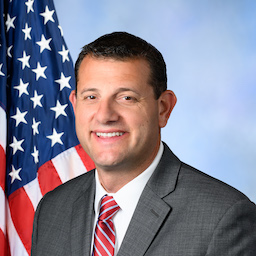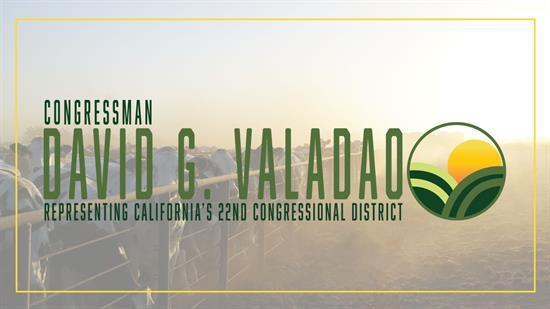- Home
- About
-
Services
- Art Competition
- Community Project Funding Map
- Congressional App Contest
- Congressional Certificate
- Event Request
- Flag Request
- Grants
- Grant Letters of Support
- Help with a Federal Agency
- Inauguration
- Internships
- Kids Page
- Meeting Request
- Service Academy Nominations
- Tour Requests
- Vietnam Veteran Commemoration
- Government Shutdown FAQ
- Issues
- Media
- Contact

Press Releases
Congressman Valadao Reintroduces Bill to Address Wildfire Risk
Washington,
June 11, 2025
|
Paige Ash
Congressman David Valadao (CA-22) joined Congresswoman Kim Schrier (WA-08) to re-introduce the National Prescribed Fire Act.
WASHINGTON – Congressman David Valadao (CA-22) joined Congresswoman Kim Schrier (WA-08) to re-introduce the National Prescribed Fire Act. This bipartisan bill would support prescribed burns as an essential, cost-effective strategy to save lives and property while addressing the harmful impacts of wildfires across the nation. Senators Ron Wyden (D-OR) and Ted Budd (R-NC) introduced the companion bill in the Senate. “In California, we understand the dangerous impact of wildfires—from damage to property to loss of life,” said Congressman Valadao. “By prescribing controlled burns to fire-adapted land in a safe and supervised way, we can limit dangerous fuel buildup and help reduce the threat of future wildfires. I’m proud to join my colleagues in re-introducing this bipartisan bill to protect our communities from wildfire risk.” “Here in Washington State, we experience devastating wildfires every year. That’s why Congress must act now and address this issue,” said Rep. Schrier. “My bill, the National Prescribed Fire Act, expands the use of prescribed fire to lower the risk of catastrophic wildfires.” “It’s no secret that rising temperatures and increased drought are leading to more and more wildfires, and firefighters are struggling to keep up as they put their lives on the line,” said Senator Wyden. “We can no longer wait for disaster to strike before we address these fires destroying our neighborhoods and even taking people’s lives. I have heard firsthand from Oregonians who are sick and tired of inaction while the West burns. Our bipartisan, bicameral bill will tackle wildfires head-on by focusing on prevention to get the West out of the cycle of crisis and devastation every wildfire season.” “Following the devastation caused by Hurricane Helene, thousands of acres of North Carolina forest were left destroyed,” said Senator Budd. “Now, these downed trees and piles of leaves represent a serious wildfire risk. By enabling the Forest Service to better conduct controlled burns of unchecked vegetation and scattered debris, we can protect our forests from catastrophic wildfires that may occur in the hottest months of the year. I am proud to join my colleague, Sen. Wyden, in introducing this common-sense, proactive approach to preventing disastrous wildfires.” The National Prescribed Fire Act would:
Background: In 2024, wildfires burned more than one million acres of land in California. As vegetation continues to grow, the Forest Service has struggled to keep up with the backlog of hazardous fuels—especially as fire seasons become hotter, drier, and more destructive. The National Prescribed Fire Act of 2025 would help reduce wildfire risk by investing in hazardous fuels management and expanding the use of prescribed burns during cooler, wetter months. The bill also strengthens the prescribed fire workforce and provides new tools to support smoke management and permitting, making it easier to conduct controlled burns in winter and prevent catastrophic wildfires and smoke in the summer. Read the full bill here. ### |

